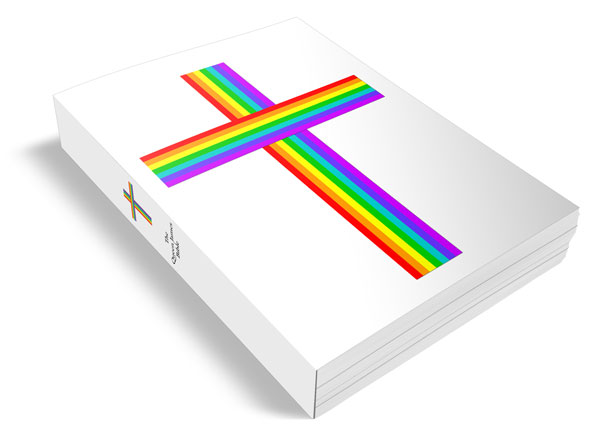 I read with interest in recent days the news (which I thought I’d heard announced at some point before) about the Queen James Bible.
I read with interest in recent days the news (which I thought I’d heard announced at some point before) about the Queen James Bible.
What this Bible does is translate the eight “clobber passages” in ways that reflect what many scholars understand them to mean, seeking to make clear that they are not about contemporary same-sex relationships. Those are the only changes – the rest is the straight (pun intended) text of the King James Version.
In some instances the translation seems to be right on target, such as in its rendering of Genesis 19:5:
And they called unto Lot, and said unto him, Where are the men which came in to thee this night? Bring them out unto us, that we may rape and humiliate them.
That’s clearly what the text means. But in other instances, it takes proposed background information which is hypothetical and works it into the text in a manner that is perhaps too interpretative (although the same criticism can be made of any Bible in places). An example is its rendering of Leviticus 18:22:
Thou shalt not lie with mankind as with womankind in the temple of Molech: it is an abomination.
You can read its distinctive rendering of these and other verses on the Bible’s web site.
Hopefully the Queen James Bible will generate some useful discussion of these passages. But on the whole, from what I’ve heard about it, I am unhappy.
One reason I don’t like this Bible is that it sticks to King James English. Doing so won’t make any part of it more likely to be understood by modern readers. But a more significant qualm I have is that I don’t think that translating these passages in ways that counter prevailing misinterpretations is something that ought to be done only in a Bible marketed at gays and lesbians. It is crucial that as many Christians as possible read translations that make the issues of translation and interpretation in these issues clear. According to a post at Red Letter Christians, there are more hate crimes against gays and lesbians each year than there are against Christians. And the “clobber passages” are one of the reasons that too few Christians care about this.
If one were to actually give the Bible a more significant makeover in the interest of having it address such issues as these directly wherever possible, what might it look like?
In a first attempt to answer that question, here is a parable, based on one attributed to Jesus in Luke 16:19-31:
There was a straight man who had a loving wife and happy family. A gay man named Lazarus would pass by his gate every day, longing to have for a relationship of his own even a shadow of the legal standing, social acceptance, and personal safety that that man had. Even neighborhood dogs came and walked alongside him and offered him companionship, but he really wished he could walk down the street hand in hand with his partner without being afraid they would get beat up. The straight man gave regularly to organizations that opposed marriage equality.
The time came when Lazarus died and the angels carried him to sit at Abraham’s side at a fabulous banquet. The straight man also died and was buried. In Hades, where he was in torment, he looked up and saw Abraham far away, with Lazarus by his side. So he called to him, ‘Father Abraham, have pity on me and send someone to dip the tip of his finger in water and cool my tongue, because I am in agony in this fire.’
“But Abraham replied, ‘Son, remember that in your lifetime you received your good things, while Lazarus received bad things, but now he is comforted here and you are in agony. And besides all this, between us and you a great chasm has been set in place, so that those who want to go from here to you cannot, nor can anyone cross over from there to us.’
He answered, ‘Then I beg you, father, send someone to my family, for I have five brothers. Let that person warn them, so that they will not also come to this place of torment.’
Abraham replied, ‘They have the Scriptures; let them listen to them.’
‘I too had the Scriptures, but I did not understand them as I do now. Please send someone to my family!’
Abraham said, ‘Fine, I’ll send Lazarus.’
‘No, father Abraham,’ he said, ‘He’s gay, and they won’t listen. But if someone who is straight goes to them, they will repent.’
Abraham shook his head with disappointment and said to him, ‘If they do not listen to Moses and the Prophets, and if they will not listen to the pain of those around them, then they will not be convinced no matter whom I send to them.’
Also relevant to this topic is the latest controversial billboard from St. Matthew in the City.












